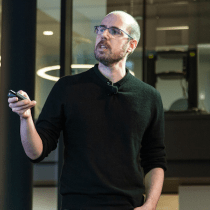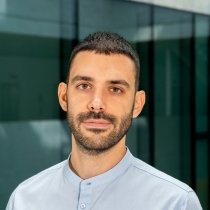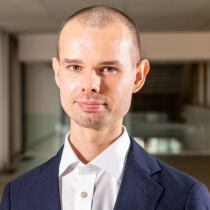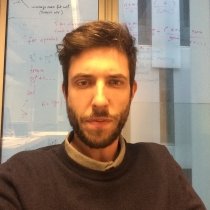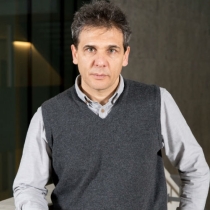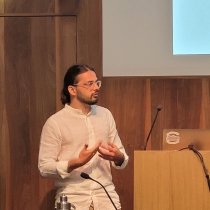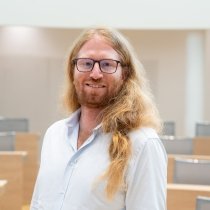Research Areas
The Department of Computing Sciences is the newest department at Bocconi University. It carries out, disseminates, and expands knowledge in computing-related research. The department promotes scientific discovery, technological innovation, entrepreneurship, and industrial collaboration. It is committed to the values of inclusivity, integrity, openness, and collegiality.
Its world-class, international, and diverse faculty conducts research in computer science, as well as in the social, mathematical, physical, and life sciences as they relate to computing. This research is supported by various EU and national agencies, as well as private foundations and companies. Members of the department have received international recognition for their contributions to both theoretical and applied areas of computing.
Students looking for an advisor for their thesis (undergraduate or graduate) can find all the necessary information here.
Computational biology and bioinformatics are interdisciplinary fields that combine biology, computer science, statistics, and data science to analyze and interpret biological data. Computational biology focuses on proposing mathematical models of biological systems, developing computational methods to understand biological processes, and simulating biological phenomena. Bioinformatics, on the other hand, primarily deals with collecting, storing, analyzing, and visualizing biological data, especially large omics datasets.
How does the brain process sensory information? How does it create new memories and store old ones? How does it make decisions? These are some of the fundamental questions that computational neuroscience seeks to answer by combining theoretical modeling, mainly tools from physics and machine learning, with the analysis of experimental data.
At Bocconi University, we focus on understanding visual information processing, investigating its mechanistic basis and algorithmic principles. We also study the mechanisms of learning and memory, examining how information is encoded and retained at both synaptic and network levels. This research is conducted in collaboration with experimentalists worldwide, integrating mathematical analysis and experimental data to uncover the principles that govern brain computations.
Learn more about our research at https://rosenalon.github.io/cifra/.
The physics of complex systems and computation is the study of the behavior of complex systems and the application of computational techniques to understand and predict that behavior. Complex systems have many interacting parts, including everything from social and economic systems to biological and ecological networks. This research area aims to develop a greater understanding of how complex systems work and to use that understanding to improve our ability to manage and control them.
In applied AI and the foundations of ML, researchers work on developing algorithms and models that can be used to solve real-world problems. These problems can involve anything from creating chatbots to writing algorithms that can automatically detect and correct errors in data.
Theoretical computer science studies the efficiency, power, and limitations of computational devices. It is an area at the intersection of mathematics and computer science concerned with the design and analysis of algorithms and the complexity of computational problems.
In our group, we are interested in many aspects of theoretical computer science, including: algorithm design, algorithmic game theory, computational complexity, discrete optimization, learning theory, learning-augmented algorithms, online algorithms, and privacy. We also collaborate with our fellow cryptographers and theoretical physicists.
You can learn more about our group at https://cs.unibocconi.eu/research/theory
Our research focuses on advancing Natural Language Processing (NLP) with an emphasis on understanding societal impacts of NLP systems. Projects include bias and fairness, human alignment, hate speech detection, emotion recognition, social media analysis and others.
Learn more about our research at https://milanlproc.github.io/.
Computational social science is an interdisciplinary field that uses computational methods to study and model social phenomena. It combines elements of computer science, statistics, and social science to study human behavior at scale.
“Vision is the process of discovering from images what is present in the world and where it is.” — David Marr, Vision (1982)
Computer Vision builds on this foundational view by developing computational methods that enable machines to interpret and understand visual data from images and videos. In our group, we combine techniques from machine learning, deep learning, and statistical modeling to address fundamental challenges in visual perception, connecting principled models of representation with modern data-driven approaches. We are particularly interested in video understanding, especially temporal reasoning and the representation of dynamic scenes.


